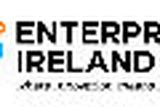Gaining traction in Germany


Combilift is one of many Enterprise Ireland supported companies which have shown that an innovative offering combined with clear commitment is the way to win in the German market.
Any Irish company looking for inspiration on how to succeed in the German market should look no further than Combilift – a materials handling equipment manufacturer based in Co Monaghan which now exports to 75 countries around the world.
With its long-established heritage in engineering and industrial excellence, Germany may seem a daunting prospect. However, Combilift and other Irish companies have proven that a strong unique selling point (USP) and a well executed strategy can lead to sales orders and continued growth.
Martin McVicar and Robert Moffett established Combilift in 1998 and decided to target the German market after only one year of operation. Currently employing 440 people and with €200m in turnover last year, Combilift has grown its German foothold to the point where it is now the company’s second largest export market after the UK, accounting for 10% of total sales.
“We have found that the German market has been the easiest to enter and get going and grow in,” says McVicar. “The reason is that companies there are very analytical and open to innovative products when they can see a visible benefit, for example, that the product will make them more efficient.”
Combilift’s USP was that it had created a multidirectional forklift truck for the handling of long products such as timber – it could move in a sideward direction as well as back and forth, which meant it could handle any length of product safely in a small space. Potential clients in Germany were willing to place orders with Combilift as they had never seen a product like this before.
We need your consent to load this Social Media content. We use a number of different Social Media outlets to manage extra content that can set cookies on your device and collect data about your activity.
Clear strategy
Of course, an innovative product alone will not guarantee sustained growth in a market. From the beginning, McVicar and his team were very specific in terms of which companies and industries to target in Germany, as well as making sure to get the distribution strategy right. Enterprise Ireland’s overseas office in Germany was instrumental in connecting the company with ideal customers and the right distributors, McVicar notes.
Eddie Goodwin, manager, Germany and Switzerland at Enterprise Ireland, says having a long-term plan and showing clear commitment to the market are among the most important criteria for success in Germany.
“Combilift recognised from early on that it was important to take a local approach and look at the country on a federal or regional basis,” he says.
“This meant having a number of distributors in different parts of Germany and hiring people on the ground with language skills to manage the distributors and also develop the business.”
Over the years, Goodwin has observed that Combilift has become ever more professional in terms of getting the most out of its channel partners in Germany – for example, it recently brought a group of distributors to its Co Monaghan plant to train them up on technological advances with the support of Enterprise Ireland.
Making inroads
Indeed the professionalism and capability of Irish companies generally in providing goods and services to German buyers is on the rise, according to Goodwin. There are now 500 Enterprise Ireland client companies making inroads into the market.
“Sales into Germany have shown double-digit growth over the past five years for Enterprise Ireland supported companies, which we are happy to see for an economy of this size,” he notes.
“Irish exporters are becoming more and more professional in terms of localising promotional material, building local knowledge and appointing strategic sales people on the ground – last year over 30 companies set up permanent channel-to-market operations in Germany. This shows a real commitment to the market.”
Goodwin says there is a multitude of opportunity in Germany now for companies with innovative solutions and offerings, in particular in the areas of engineering, agri-tech and construction. The life sciences, IT services and internationally traded services sector also hold significant potential.
“It all comes back to identifying where needs exist in Germany, where we have strength and capability and then matching the two,” he says. “German companies are willing to take a chance on new entrants if the offer is good enough.”
He cites the example of IPL Group, a relatively small manufacturer of infrastructural products and services based in Drogheda, Co Louth. It achieved success with municipal authorities in Germany recently selling an innovative product which stops traffic lights bending after collisions.
“Irish companies need to look at niches when considering the German market. Buyers there are interested in products and services they haven’t come across before,” notes Goodwin.
Market entry tips – Germany
Eddie Goodwin, manager, Germany and Switzerland, Enterprise Ireland, shares his key pieces of advice to companies looking at the German market:
* Above all, your offering needs to be different and better than what already exists in Germany in order to compete. After that, service and reliability are extremely important. Price is down the list of priorities.
* Under-promise and over-deliver when dealing with German clients. If you say you will have drawings to them in a month, for example, you must stick to that. Promises must be kept and you need to stand by your commitment in every aspect of your relationship with a client.
* The local language needs to be respected. Your initial sales conversation can potentially be in English but after that any negotiations or further dealings should be in German. If you don’t possess the language skills within your organisation, the sooner you can get someone with fluent German to represent you in the local market the better.
* The decision-making process in Germany is slower than companies may be used to in other markets. If you’re trying to sell a catheter or piece of engineering equipment, for example, you will have to win people over in a number of different departments – from engineering right through to purchasing and ultimately management – to get the go-ahead for a deal. Irish companies need to take their time to get to grips with this. The flip side of this is that German companies don’t switch suppliers as easily as companies in other countries – once you are successful with your first project, you’re in there for the long term.
To read more about Combilift’s exporting strategy as well as tips and advice from co-founder and managing director Martin McVicar, click here.
Sponsored by:


